Signalis is shaping up to be a beautiful, fragmented sci-fi nightmare
Space survival horror that seems familiar, until it surprises you.

True horror fans know that when a story references The King In Yellow, only the luckiest will survive with a full set of marbles. Signalis practically opens by making you pick up the book, though somehow it never appears in your inventory. That's the first clue that Space Madness is right around the corner.
If I were to be terribly reductive, I’d describe Signalis as a (mostly) top-down anime Silent Hill in space. But horror is a genre carried entirely by vibes and gut feeling, and my gut tells me that Signalis is something special. It calls itself 'psychological horror' and imitates the tone of Silent Hill, but much like how Dead Space combined Resident Evil 4, System Shock and Event Horizon into an experience all its own, Signalis is a rich stew of sci-fi and horror tropes.
It’s familiar, palatable and accessible, up until the moment it becomes something else.
They look like monsters to you?
This is how Signalis gets under your skin. Despite being set in a grounded (if deeply dystopian) low-tech universe with oodles of worldbuilding text to consume, there’s a pervasive sense of unreality here. Puzzles are surreal and abstract for no clear reason, and protagonist Elster (a mass-produced ‘Replika’ android) has her own thoughts, feelings, drives and fragmented memories that you’re not privy to. Still, her mission is clear enough: Search the remote icy planet of Leng for her ship’s missing co-pilot.
There’s a gnawing sense that despite being the player, nothing here is within your control. Or anyone’s, for that matter. All of the living characters you meet seem to be as lost as you are.
Mechanically Signalis is at its most familiar: This is classic survival horror, built on puzzles, exploration and resource management. There’s finite ammo and healing, claustrophobic tunnels patrolled by former androids-turned-monsters, and save rooms with storage chests that let you lighten your limited inventory space. Combat most resembles Resident Evil 1’s remake, with simple shooting made tense by reviving monsters that can only be permanently killed with limited incendiaries, or stunned with consumable emergency items. Those who find that too stressful can also lower the difficulty, greatly reducing resource pressure. This aspect of Signalis is unremarkable.
Signalis feels remarkable in every other respect, though. On top of some stylish cutscenes scored with brooding classical pieces, its world built from impeccable pixel art backdrops with low-res 3D models overlaid in classic Resident Evil fashion, aided with a map that marks key rooms, and doors as broken, open or locked. Rather than obfuscating where to go, the camera sits motionless at a clear overhead perspective.
Keep up to date with the most important stories and the best deals, as picked by the PC Gamer team.
And then suddenly it doesn't: Signalis sharply jumps into PlayStation-esque first-person 3D for a puzzle or exploration sequence. Between these shifts and the glitchy video effects surrounding the enemies you’ll encounter, Signalis never lets you feel secure.
Channeling Silent Hill’s sound designer Akira Yamaoka, most of Signalis’ soundscape is layered industrial droning, the thrums of distant machinery and clicking drive-heads. Right up until a monster sees you and screams—then the muted white noise is replaced with a discordant mechanical cacophony; the sound of synthetic adrenaline and your android heart pounding in your ears until you either escape or your aggressors are dead.
The audio, puzzles and overarching themes of the game intersect in the radio panel. Being a low-fi android, Elster has a built-in radio tuner that automatically decodes signals. Most frequencies just contain noise, numbers stations and distorted music, but others will provide codes to tap into locked safes, broadcast important sounds or even harm enemies. So long as you have the radio turned on, the ever-present looping signals, cryptic messages and noise add another layer of anxiety.
Shattered Memories
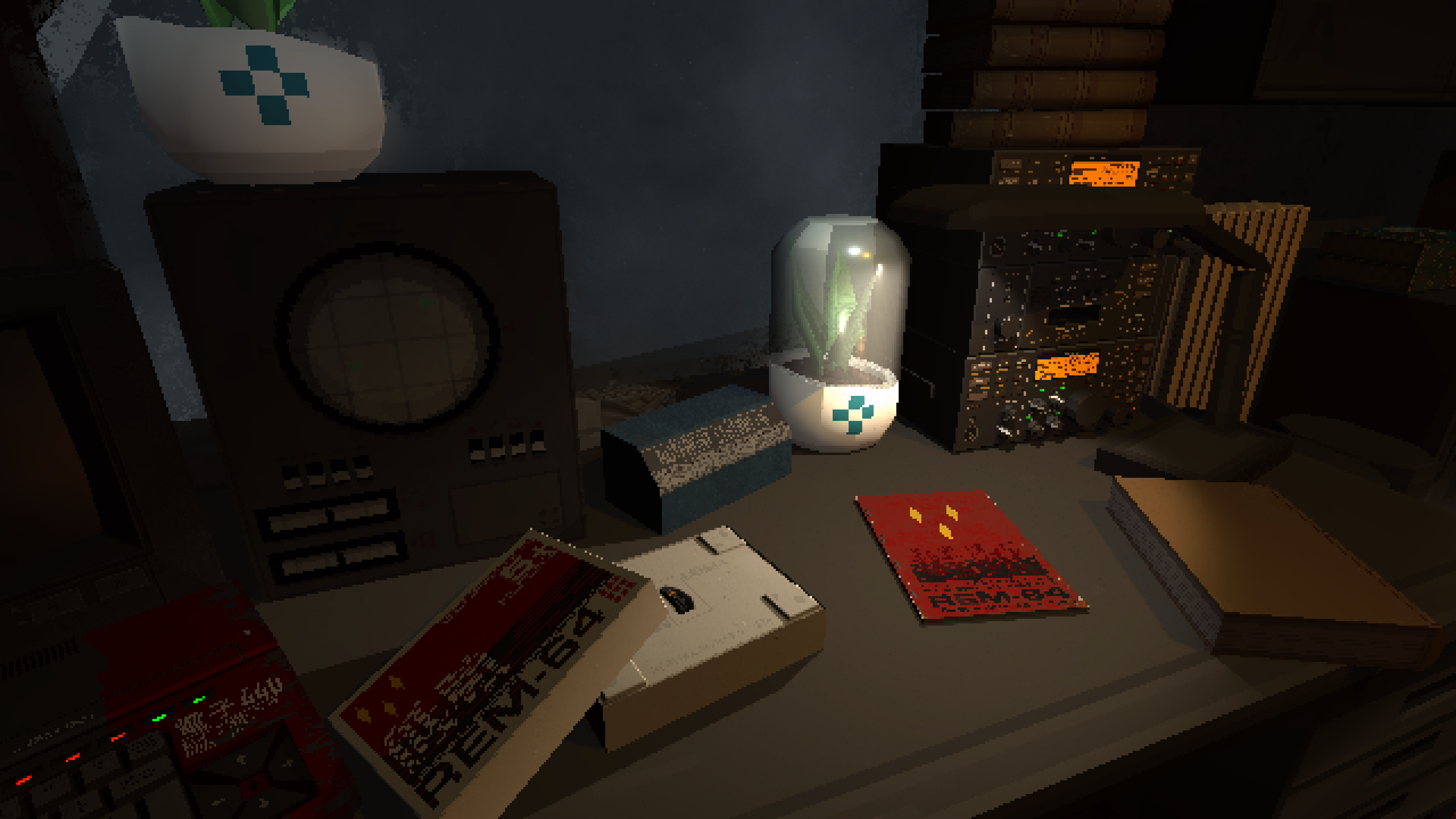
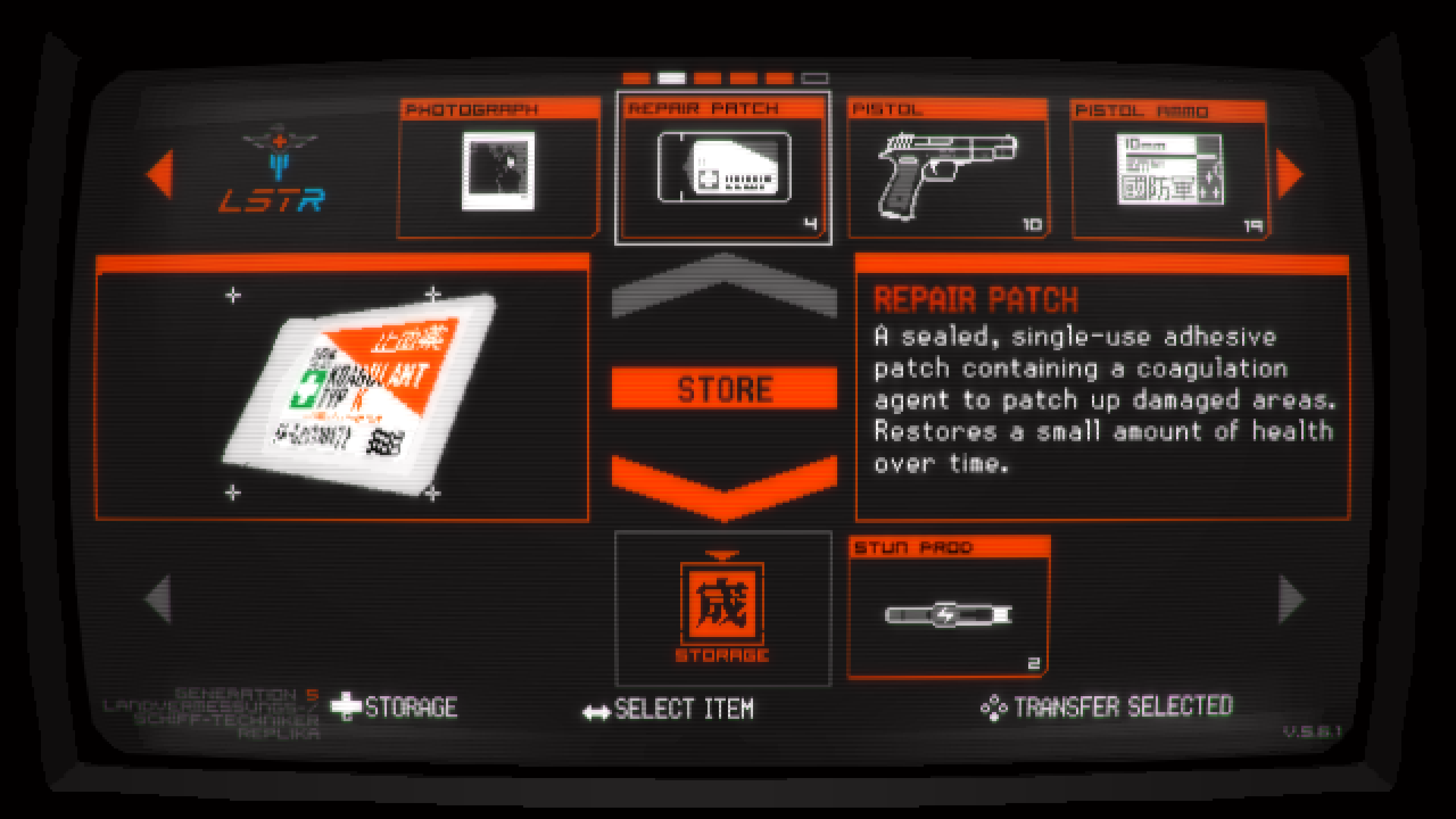
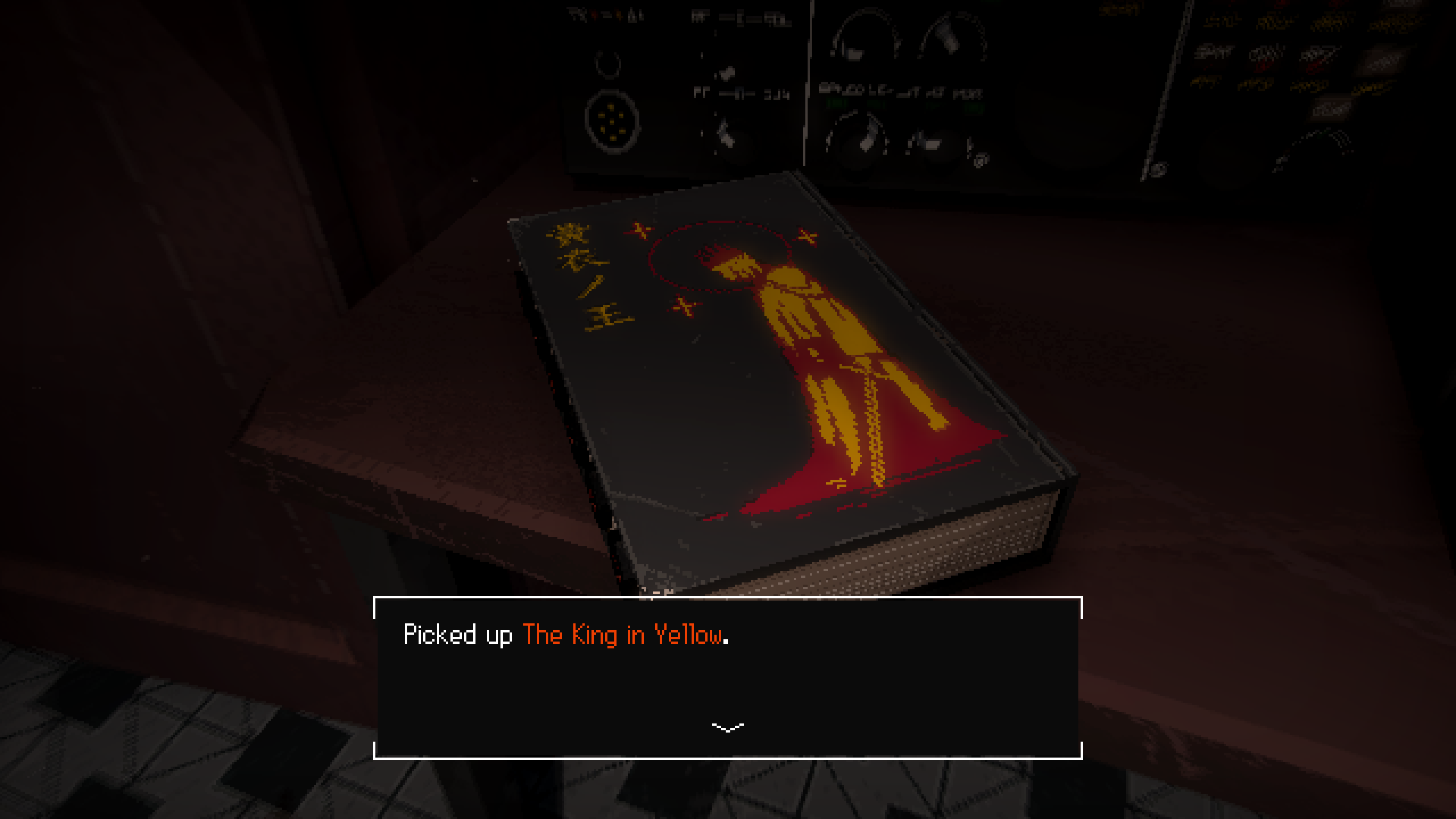
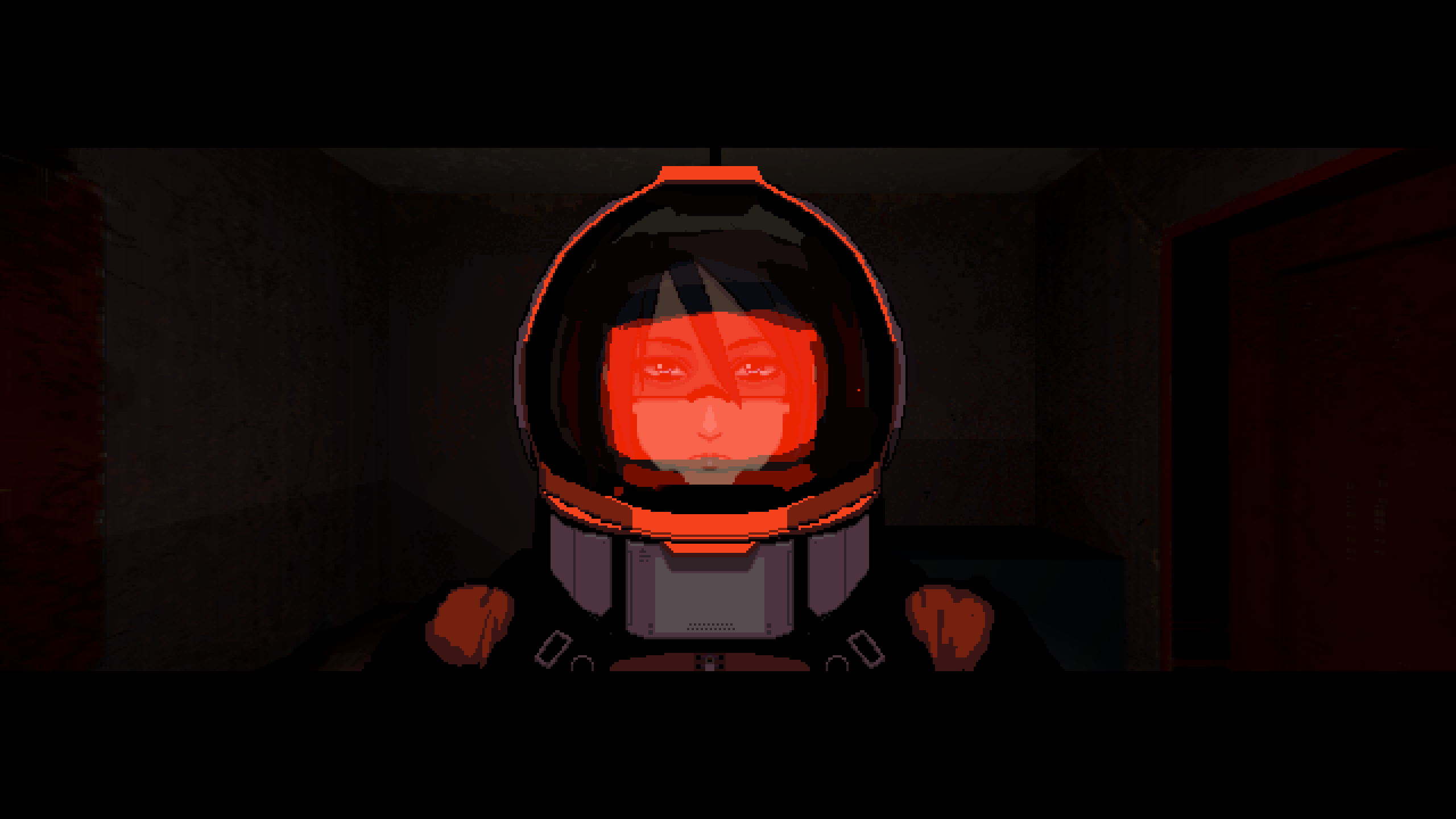
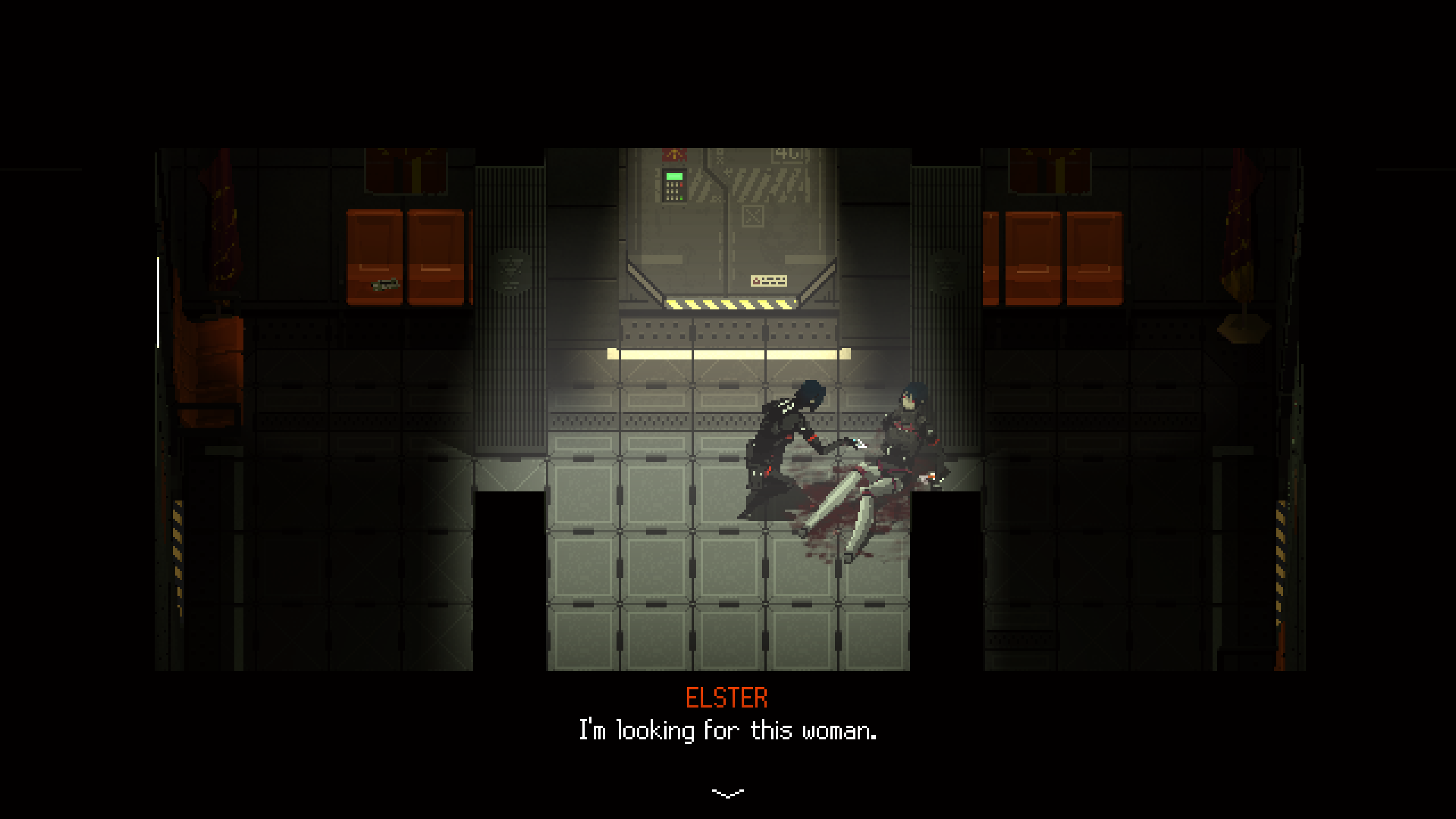


Signalis’ intentional ambiguity kept me anxious all the time. Don’t expect easy exposition: Signalis is dreamlike, often skipping ahead, leaving the player to figure out how much time has passed. First-person 3D flashback sequences further jumble the timeline, impossible scenes interspersed with more plausible memories. While your mission is always simple—a downward spiral in search of a missing person—many of the finer points are left up to interpretation.
My complaints with Signalis begin and end with inventory management. Elster has a six-slot inventory. Unfortunately, one gun and a box of ammo are two items. Add healing items for three. One defensive item makes four. There’s a flashlight (for dark rooms) and a camera (for visual notes of puzzle hints) as well, and that’s before you need to carry a single puzzle key-item. Needless to say, I was backtracking to storage chests frequently. Just one extra slot (or letting me permanently equip the torch and camera) would have solved 80% of my inventory woes.
But that’s it for complaints. I’d love to talk more about the story and its world, but I don’t want to spoil any surprises. Signalis launches on October 27th, and will also be on Game Pass, and I cannot wait to talk with the Silent Hill crowd about Elster's fractured memories. Signalis feels like a game I’ll be thinking about and remembering (however hazily) for a long time.

The product of a wasted youth, wasted prime and getting into wasted middle age, Dominic Tarason is a freelance writer, occasional indie PR guy and professional techno-hermit seen in many strange corners of the internet and seldom in reality. Based deep in the Welsh hinterlands where no food delivery dares to go, videogames provide a gritty, realistic escape from the idyllic views and fresh country air. If you're looking for something new and potentially very weird to play, feel free to poke him on Bluesky. He's almost sociable, most of the time.

